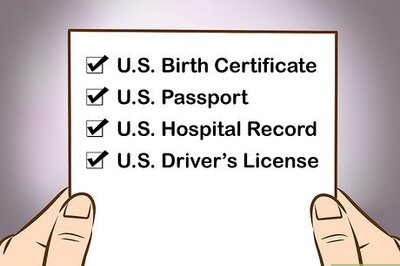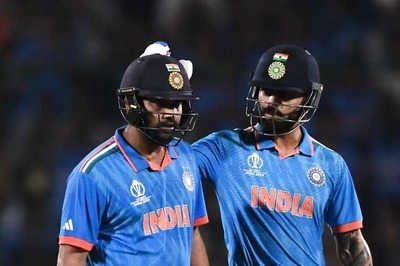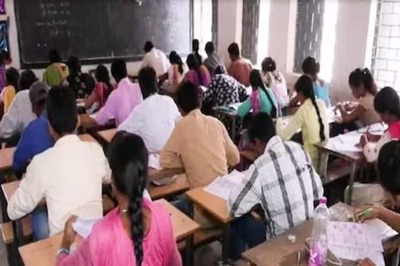
views
New Delhi: As the number of people infected with Zika virus rose to 72 in Rajasthan, the Union health ministry on Monday asked states to check mosquito breeding and intensify vector control strategies to contain the spread of the disease.
Sanjeeva Kumar, additional secretary (health), ministry of health and family welfare, held a meeting with various state representatives through video conferencing. He asked them to implement the guidelines as prescribed under the National Vector Borne Disease Control Programme for effective control of Zika.
“States have been asked to intensify vector control strategies, which include anti-larvae activities and fogging, and also follow the guidelines as prescribed under the National Vector Borne Disease Control Programme for effective control of Zika virus disease,” a health ministry official said. States have also been asked to strengthen their surveillance systems.
Zika is caused by aedes aegypti mosquito which also transmits dengue and chikungunya and breeds in open stagnant water. Twelve new cases of Zika virus were detected in Jaipur Monday, taking the total number of infected people to 72. "Sixty out of the total 72 patients are healthy after treatment," a Rajasthan health department official said.
Most of the cases have been reported from Shastri Nagar area in Jaipur where fogging and other anti-larvae activities are being carried out to prevent the spread of the virus, he said. So, far door-to-door survey of 96,000 households has been conducted in Shastri Nagar and neighbouring localities. Mosquito larvae was found in the area, the officer said.
The state health department has also issued an advisory for pregnant women staying outside the affected area to not visit Shastri Nagar.
The Zika virus causes fever, skin rashes, conjunctivitis, muscle and joint pain. It is harmful to pregnant women as it can lead to microcephaly, a condition in which a baby's head is significantly smaller than expected.
In India, the first outbreak was reported in Ahmedabad in January 2017 and the second in Tamil Nadu's Krishnagiri district in July that year. Both these outbreaks were successfully contained through intensive surveillance and vector management.
The disease is under surveillance of the Union Health Ministry although it is no longer a Public Health Emergency of International Concern under the World Health Organisation (WHO) notification since November 18, 2016.




















Comments
0 comment